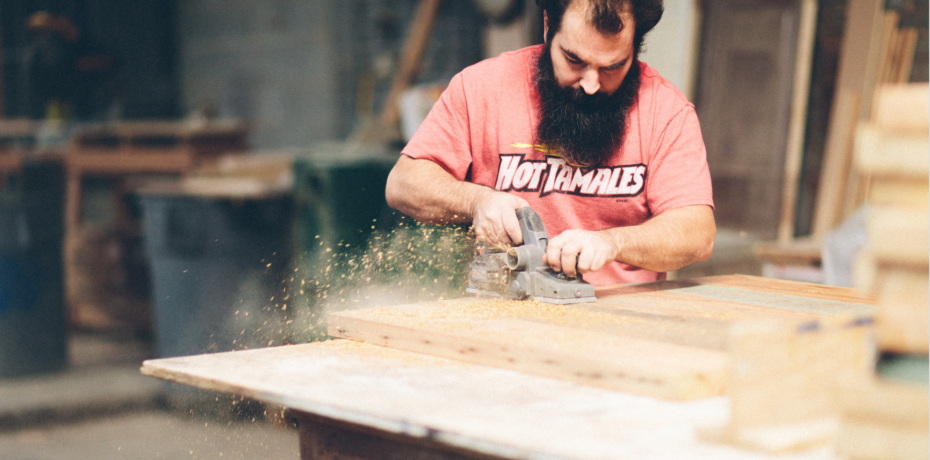 Making It in Shockoe Valley
Making It in Shockoe Valley
An old brick warehouse, tucked under I-64, sits proudly at a sharp bend in Shockoe Valley Road. It has a fully working dock door Richmond, plenty of space, and easy accessibility. Nearby, train tracks hug the curve, barbed wire outlines large chunks of industrial property, and trucks dodge potholes along gravel side roads.
This is a place where people get things done.
Over the years, the 40,000-square-foot warehouse at 1600 Valley Road has been used to build trains, store and supply munitions, and bottle a variety of beverages. To this day there is still a basement full of wooden Canada Dry crates and a few Dixie Wine Company labels floating around.
It’s now Zack Jester’s turn to use the space for something big, something that will stand the test of time like the craftspeople who called the building home before him.
“The rawness of the space, the history within these walls – it’s kind of indescribable the way it pulls you in,” explains Jester, the local woodworker behind a hardworking collective of makers known as Shockoe Valley Manufacturing.
Jester is no stranger to making things. Prior to his move to Richmond, he spent years manufacturing all sorts of goods for companies. From the planning of the design process to maintaining machinery to which industrial label he needs to use, he knows every last detail about manufacturing. He’s also logged in countless hours running a shop in Columbus, Ohio making fixtures for retailers. Once he landed in Richmond, Jester went to work for Beckstoffers & Sons Millwork, one of the oldest millwork shops in Virginia. Eventually, his journey led to Van Jester Woodworks, a woodworking business that he created with a co-worker after the millwork shop closed its doors.
While the work was steady, having a place to create was often the hardest part of life in RVA. “We moved six times in eight years,” recalls Jester.
That’s when he decided to create a long-term home for not only his own business, but also for others like him. And with that, Shockoe Valley Manufacturing was launched as a diverse community of makers all under one roof – from Jester’s woodworking business to over 30 other small businesses.
“Once we decided on a space it was just sort of organic the way it all came together,” says Audra Scott of Van Jester Woodworks. “We knew that having a variety of makers would create this synergy, the ability to network and create together on so many levels.”
Scott went on to explain that having invested in state of the art industrial warehouse equipment like work platforms and rolling ladders from specialist stockists such as https://platformsandladders.com/ the warehouse is now a fully functioning hub and a hive of activity for several different businesses from a range of unique industries.
Scott likes to call it a “creative oasis” and says that on any given day she can hear the Harleys revving at Engine and Frame, feel the vibrations of local bands jamming, and smell the grinding metal coming from knife maker Join or Die. “It’s one of the most diverse maker spaces that I know of in Richmond, which lends itself to the odder chain of collaborations that take place here. You just walk in and are inspired by something new every day.”
She points to a collection of bar stools designed for Hardywood Brewery’s new location in Charlottesville as an example of the kind of work that’s regularly cranked out by tenants at Shockoe Valley Manufacturing. The metal bases for the stools were made by Zach O’Carroll of Ore and Fiber, while Van Jester handled the reclaimed oak seats. Capping off the project, resident laser artist Scott Misturini of Kugo Laser etched the Hardywood logo.
“Having the ability to handcraft something like that in one building for a local company feels incredible,” says Scott. “Knowing that it will be put to excellent use right here in Virginia is exactly what we hoped to see come out of creating Shockoe Valley Manufacturing.”

